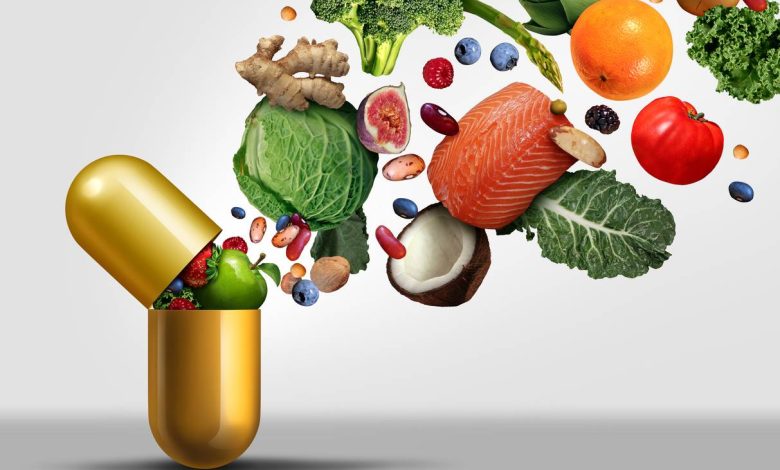The hidden cause of common symptoms like fatigue and muscle pain could be nutrient deficiencies. You might think that nutrient deficiencies are a thing of the past, something only seafarers on long voyages know, but even today you can still find yourself lacking in some of the essential nutrients your body needs to function optimally. Nutrient deficiencies affect bodily functions and processes at the most basic cellular level. These processes include water balance, enzyme function, nerve signals, digestion, and metabolism. Correcting these deficiencies is important for optimal growth, development, and functioning.
Nutrient deficiencies can also lead to disease. For example, a lack of calcium and vitamin D can cause osteopenia or osteoporosis, two pathologies characterized by bone fragility. And iron deficiency can cause anemia, which saps your energy.
Telltale symptoms are usually the first clue to a deficiency in one or more important vitamins or minerals. How to recognize seven common nutritional deficiencies.
1. Calcium: numb fingers, tingling and abnormal heartbeat
Calcium is important for maintaining bone strength and controlling muscle and nerve function. Signs of severe calcium deficiency include numb fingers, tingling, and an abnormal heartbeat. However, there are no obvious short-term symptoms of calcium deficiency. Most adults need 1,000 milligrams (mg) of calcium per day, but women over 50 and men over 70 need 1,200 mg. At least three servings of milk or yoghurt a day should provide you with sufficient calcium. Cheese is another good source of calcium, but if you don’t like dairy, you can find this nutrient in orange juice or calcium-fortified breakfast cereals (check the food nutrition label to see if calcium has been added) and dark leafy greens like kale and Broccoli.
2. Vitamin D: fatigue, bone pain, mood swings, etc.
This vitamin is another crucial vitamin for bone health and may also help prevent certain types of cancer. Symptoms of vitamin D deficiency can be vague: you may experience fatigue, bone pain, mood swings, and muscle pain or weakness. Long-term vitamin D deficiency can lead to softening of the bones. Long-term deficiency can also be linked to cancer and autoimmune diseases. Most adults need 15 micrograms (mcg) of vitamin D daily, and adults over 70 need 20 mcg. Aim for three servings of oily fish, such as salmon or tuna, twice a week, as these are foods that contain vitamin D. Also, spend time in the sun each day as it is an excellent source of this nutrient. Ten to 30 minutes of direct sunlight a few times a week should help.
3. Potassium: muscle weakness, constipation, irregular heartbeat, etc.
Potassium helps the heart, nerves and muscles function properly and brings nutrients into cells while eliminating waste. It’s also a helpful nutrient that helps offset the negative effects of sodium on your blood pressure. Potassium deficiency can occur in the short term from diarrhea or vomiting, excessive sweating, use of antibiotics, laxatives, or diuretics, excessive alcohol consumption, or chronic conditions such as kidney disease. Symptoms of deficiency include: muscle weakness, twitching or spasms, constipation, tingling and numbness, abnormal heartbeat or palpitations.
Natural sources of potassium are bananas, squash, lentils, kidney beans and other legumes. Adult males require 3400 mg per day and females 2600 mg.
4. Iron: Fatigue, shortness of breath, cold hands and feet, brittle nails, etc.
Iron is needed for the production of red blood cells, which carry oxygen around the body. When iron levels are too low, there can be a shortage of red blood cells, leading to a condition called anemia. Groups at increased risk of iron deficiency include menstruating women, growing people (such as children and pregnant women), and people following a vegan or vegetarian diet. Anemia can manifest with symptoms such as weakness and fatigue, shortness of breath, rapid heartbeat, pale skin, headache, cold hands and feet, sore or swollen tongue, brittle fingernails, and cravings for strange things like dirt. Symptoms can be so mild at first that you don’t notice them, but as iron stores are depleted they become more intense. To increase iron levels, try eating beef, oysters, beans (especially kidney beans and kidney beans), lentils, and spinach. Adult men and women over 50 need 8 mg per day and adult women under 50 need 18 mg per day.
5. Vitamin B12: Numbness, Fatigue, Swollen Tongue and More
Vitamin B12 helps in the production of red blood cells and DNA and also improves the functioning of neurotransmitters. Vegetarians and vegans are particularly at risk for vitamin B12 deficiency because plants don’t produce this nutrient. People who have had weight-loss surgery can also have low B12 levels because the procedure makes it harder for the body to extract the nutrient from food.
Symptoms of severe B12 deficiency are: numbness in the legs, hands or feet, difficulty walking and balance, anemia, tiredness, weakness; swollen and inflamed tongue; Memory loss and difficulty thinking, according to Harvard Health Publishing. These symptoms can come on quickly or gradually, and because they are so varied, you may not notice them for some time.
Adults need 2.4 µg of B12 per day. It’s most commonly found in animal products like fish, chicken, milk, and yogurt to help boost your B12 levels. You can also find B12 in most multivitamins, but if you’re at risk of a deficiency, you can take a supplement that specifically contains B12.
6. Folic acid: fatigue, diarrhea, smooth tongue, etc.
Folate, or folic acid, is an especially important B vitamin for women of childbearing age, so prenatal vitamins are usually high in it. Folic acid promotes healthy growth and function and may reduce the risk of birth defects, especially those that affect the neural tube (brain and spine). Folate deficiency can decrease the total number of cells and large red blood cells and cause neural tube defects in an unborn baby. Symptoms of folate deficiency include fatigue, irritability, diarrhea, poor growth, and a smooth, tender tongue.
Women who could become pregnant should take 400 µg of folic acid daily in addition to foods containing folate. Interestingly, folate is best absorbed by the body in the form of supplements, with 85% coming from supplements and 50% from food.
To get folic acid from food, focus on beans, peanuts, sunflower seeds, whole grains, eggs, and green leafy vegetables.
7. Magnesium: loss of appetite, nausea, fatigue, etc.
Magnesium contributes to bone health and energy production. Adults need 310-420 mg depending on gender and age. Although magnesium deficiency is fairly rare in healthy people, certain medications (including some antibiotics and diuretics) and certain medical conditions (such as type 2 diabetes and Crohn’s disease) can limit magnesium absorption or increase the loss of this nutrient from the body. Magnesium deficiency can lead to loss of appetite, nausea and vomiting, fatigue and weakness. In more severe cases, there may also be numbness and tingling, muscle spasms or twitches, seizures, irregular heartbeat, personality changes, or coronary spasm. Eat more magnesium-rich foods like almonds, cashews, peanuts, spinach, black beans, and edamame to help your levels return to normal.
From nutrient deficiencies to healthy eating
If you think you have a nutrient deficiency, talk to your doctor. Blood tests can help determine if you have a deficiency. And if so, your doctor can refer you to a nutritionist or recommend dietary supplements. The best way to prevent or correct nutrient deficiencies is to eat a balanced, nutrient-dense diet. I recommend dieting first, but if you’re at increased risk of nutrient deficiencies, you may benefit from taking a multivitamin. At risk are the elderly, people on restrictive diets (like vegans and vegetarians), pregnant women, and people who don’t eat a lot of fruit and vegetables. Don’t hesitate to consult your doctor if you have any questions about your risk.
* Presse Santé strives to convey health knowledge in a language accessible to all. In NO CASE can the information given replace the advice of a doctor.
Like our content?
Receive our latest publications directly in your mailbox every day free of charge
keywords
Calcium Nutrient Deficiency Fatigue Dizziness Vitamin D





